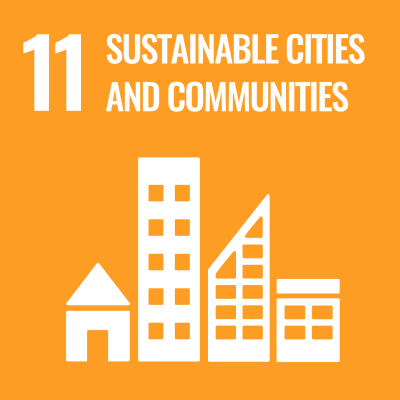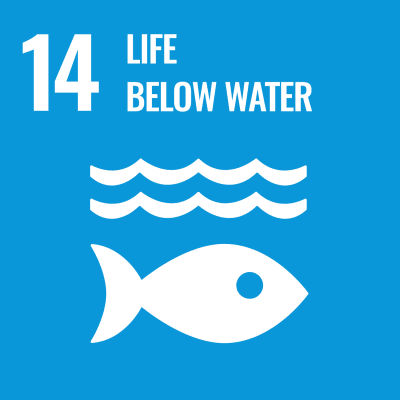-
Faculty of Education, Department of Primary Education
- Professor
- Junko SAITO
- Research Field
Art education
- Keyword(s)
Skill for expressive arts, Art apuureciation, Development of teaching materials
- Research theme
-
- Development of teaching materials and instructional methods for acq
- Development of teaching materials to foster diverse views and ways of thinking
- Methods of teaching appreciation to enhance expressive ability
- Development of color teaching methods (traditional Japanese colors, etc.)
Outline of research activities
My research is a practical study based on the reality of children’s thinking and expression as seen from the school site. Arts and crafts is a subject that deepens awareness of diversity. I will develop teaching materials that aim to foster diverse ways of seeing and thinking and the acquisition of expressive skills. I will propose teaching methods that aim to improve children’s ability to think and create figuratively through learning from each other.

- Desired cooperation
-
- Research on arts and crafts classes at schools
- Art Appreciation Education with Museums
-
Faculty of Education, Department of Primary Education
- Associate professor
- Hiroyuki YAMASHITA
- Research Field
Science Education, Field Learning, Biology Education, Earth Science Education
- Keyword(s)
Teaching Material Development, Disaster Prevention, Quantitative Experiments
- Research theme
-
- Development of model teaching materials that relate basic flow velocity principles and natural disasters
- Development of the instruction method to be introduced field learning into in earth science education
- Development of quantifiable teaching materials using optical methods, etc.
Outline of research activities
I am mainly researching the development of science teaching materials that can be used in educational sites. In elementary and junior high school science, especially in elementary school science experiments, most of them are qualitative experiments. For example, when investigating the properties of things that are “invisible” to the human eye, such as light and magnetic force, we use relative terms such as “bright” and “strong.” Even in qualitative experiments that rely on bodily sensations, we can “see” the nature of things. However, if we can compare this experience with numerical values such as “how bright” and “how strong”, we will be able to “see more” what we “see” until now. Experiments that compare numerically like this are called quantitative experiments. When we can “visualize” the properties of things with these educational materials, we are sure that the observer’s eyes will have a higher resolution and be moved by the wonder and charm of the natural world. We are conducting research on the development of teaching materials that can be “more visualized” in various fields of science education.

- Desired cooperation
-
- Development of model teaching materials related to disaster prevention
- Development of educational programs to understand the morphology and structure of vertebrate bones
- Development of educational programs using self-made reflectometers, self-made specific polarimeters, self-made nephelometers, etc.
-
Faculty of Education, Department of Primary Education
- Associate professor
- Kazuaki KITAHARA
- Research Field
Physical education method
- Keyword(s)
Play, Sports, Health, Lifetime sports, EBE
- Research theme
-
- Making evidence-based physical education classes
- Differences in class views between children and educators
- Elementary and Junior High School Continuity
Outline of research activities

It is said that physical education classes are relatively popular with children and students, and that they are highly independent in these classes.It is true that this has been supported by the diligent research of teaching materials by in-service teachers and the development of teaching methods.
However, in the in-service teachers differentiation according to individuals and groups is required because.However, the development of teaching materials and the choice of teaching methods are becoming half-implicit knowledge.I am trying to systematize the enormous teaching methods of in-service teachers that have been cultivated so far.As such, I hope to make teacher behavior explicit knowledge.- Desired cooperation
-
- Social education
- Lifetime sports
- Lesson research
-
Faculty of Education, Department of Primary Education
- Associate professor
- Miho IMOTO
- Research Field
Music Education
- Keyword(s)
Music Education, Physical Expression, Creativity
- Research theme
-
- Elucidating the Techniques of Music Teachers Using Multimodal Analysis Techniques
- Music Education in the Nursery School-Elementary School Connection
- Music and Physical Expression
Outline of research activities

Music instruction is conducted not only through words, but also through various non-verbal means of expression, such as eye contact, gestures, and facial expressions. We are collecting and studying objective data on what music teachers look at and how they use their bodies in response to what situations, using eye-gaze measurement devices, motion capture, etc. We are also collecting data on the actual status of music teachers’ nonverbal communication by comparing these data with the results of interviews with teachers. By comparing these data with the results of interviews with teachers, we aim to elucidate the actual state of nonverbal communication among music teachers.
We are also conducting research on the relationship between music and physical expression.- Desired cooperation
-
- Research on the Proficiency of Music Teachers
- Research on Nonverbal Communication in Music Instruction
-
Faculty of Education, Department of Primary Education
- Associate professor
- Shogo HARADA
- Research Field
Home Economics Education
- Keyword(s)
Lesson development, Home life
- Research theme
-
- How to design home economics classes
- How “Home economics” should be as school subjects
- How “Home economics” has changed
Outline of research activities





“Home economics” in school education aims to improve the skill of homemaking through the velationships between oneself and their family, their consumption habit, their eating habit, their dwelling life, their clothing life and so on.
“Home economics” is concerned with not only our claily life but some subjects life social studies and science. Moreover it’s very important to reflect on your home life so far.
I investigate how “Home economics” should be and I design exciting, satisfactory and practical classes.

- Desired cooperation
-
- Designing home economics classes
- Development of teaching materials
-
Faculty of Education, Department of Primary Education
- Associate professor
- Takako DOI
- Research Field
History of Education, Adult Education in England
- Keyword(s)
Workers' Educational Association, Liberal Adult Education, National Union of Teachers
- Research theme
-
- Establishment and development of Workers' Educational Association
- Educational reconstruction in England : argument of WEA and NUT
- The history of Social Studies at the Joint University Council for Social Studies
Outline of research activities


The founding of Workers’ Educational Association (WEA) in 1903 is situated in the social development of the working class organisation and is sustained the rich associational culture. In my research, I apply on the focus to the working-class association which was affiliated with WEA and the adult students who came to class. What was contributed to the educational life of the workers? What was the WEA’s purpose in putting forward the educational reconstruction? I will try to explore this.

- Desired cooperation
-
- lifelong education, further education, continuing education
- History of educational thought
- Modern history in England, Social welfare society
-
Faculty of Education, Department of Primary Education
- Associate professor
- Tomohiko YASUMORI
- Research Field
math, teacher education, teaching ratio learning
- Keyword(s)
math, PCK, teacher education, teaching ratio learning
- Research theme
-
- How to think and think about the ratio of raising in the organization
- Development of human resources for teachers in learning guidance
Outline of research activities
The first point is “How to view and think about the ratio of raising in an organization.” Children in Japan have a big problem in how to think and think about the ratio. Each school is making every effort to overcome this challenge. Therefore, with the aim of providing this support, I am conducting research to cultivate views and ways of thinking about the proportion of children throughout the school organization. As an example, we have organized the points for raising the perspective and way of thinking in any grade, and have developed and visualized a table that shows the systematics of each grade..
The second point is “teacher training for teachers in learning.” In the future, teachers will need to be able to adapt to various learners in a flexible manner and to be able to teach adaptively. In response to this request, I developed a reflection matrix as a self-study tool for young and mid-career teachers to absorb the essence of the learning guidance of experienced veteran teachers and to become adaptively proficient. The matrix reflection method using this tool allows students to grow through self-diagnosis without the need for familiar veteran teachers.- Desired cooperation
-
- Research to foster the way of thinking and thinking about the ratio of arithmetic
- Research on human resource development and proficiency in teachers' teaching
-
Faculty of Education, Department of Primary Education
- Associate professor
- Yayoi OKUMURA
- Research Field
Educational psychology, Clinical psychology
- Keyword(s)
Children's social-emotional development, SEL
- Research theme
-
- Teacher's involvement to support children's social-emotional development
- Development and implementation of SEL programs
- Relation between evaluation of emotion and adaptation
Outline of research activities


I am interested in teacher involvement in supporting children’s social-emotional development. School is not only a place to develop academic skills, but also to promote children’s social-emotional development. So, what kinds of teacher involvement contribute to the development of children’s social-emotional competence? I am collecting and analyzing data on these questions.
I am also developing programs to foster communication skills, etc., with reference to psycho-educational programs that foster knowledge and skills related to the mind and social-emotional learning (SEL). These programs are meant to “prevent” problematic or maladaptive behaviors before they occur. I am also interested in how to utilize such programs in actual educational settings.- Desired cooperation
-
- Data collection and analysis of children's social-emotional competence
- Development and implementation of programs to promote children's emotional development
-
Faculty of Education, Department of Secondary Education
- Professor
- Junichiro TAKENO
- Research Field
English Language Education
- Keyword(s)
Listening, World Englishes, English Teaching Method
- Research theme
-
- Listening research focusing on rehearsal speed
- Examination of the authentic use of English worldwide
- Research on the relationship between reading and listening comprehension
Outline of research activities


I am interested in English education in general, and I have conducted listening research focusing mainly on rehearsal speed and processing speed. I am examining the authentic use of English in countries and regions around the world, using research on World Englishes.
I am also interested in research on the relationship between speed-reading and listening comprehension with an awareness of English word order.
Currently, I would like to conduct research on the changes in English education in elementary, junior high and senior high schools due to the revision of the Course of Study, and on how to personally and professonally develop future English teachers at universities.- Desired cooperation
-
- Listening research
- Research on the use of English in the world with research on World Englishes
- Research on English language education in general.
-
Faculty of Education, Department of Secondary Education
- Professor
- Kosuke FUKUSHIMA
- Research Field
Japanese language education
- Keyword(s)
Japanese Language Arts, Inquiry, IB, Theory of knowledge
- Research theme
-
- The somewhat vague and ambiguous field of Japanese language education
- International Baccalaureate Language A Japanese (Japanese A),
- Theory of Knowledge (TOK)
- Research on inquiry-based learning methods and their practical application
Outline of research activities



After graduating from graduate school, I have spent many years teaching Japanese language arts at middle and high schools. During my long tenure at a middle and high school affiliated with an international school, I have reflected on and implemented approaches related to the International Baccalaureate program, interdisciplinary learning, and inquiry-based education.
Rather than being a literature enthusiast, I became a Japanese language teacher because I enjoy analyzing and refining logical arguments. My goal is to develop a systematic approach to helping students master Japanese as a language and to theorize the educational practices I implement in the classroom.
Think, Don’t Feel.
It is like a finger pointing away at the moon. Don’t concentrate on the finger, or you will miss all that heavenly glory.- Desired cooperation
-
- Research on lessons incorporating elements of the International Baccalaureate at Ichijo School
- Research on exploratory and conceptual lessons in
- Japanese language classes
-
Faculty of Education, Department of Secondary Education
- Professor
- Shammi DATTA
- Research Field
Teacher Education, IB、Japan Studies (History, Cutlure and Regional Revitalization)
- Keyword(s)
Proactive Learning, Inquiry, IB, Regional Revitalization, Animism
- Research theme
-
- Global standards inquiry based teaching and learning, and IB education in Japan and India
- Regional revitalization
- Animism in Shinto and Hinduism
Outline of research activities


How can teachers motivate learners towards meaningful inquiry and research based learning? Should teachers teach, facilitate, or both? How can interactive, proactive student co-ownership of learning and assessment be realized? These are my primary inquiry questions in the field of teacher education.
My primary inquiry interests in Japan Studies and social studies education are as below: How do local policy and business models come together to bring about regional revitalization? How can we implement case studies in this area in secondary school education, and Japan Studies education?
Analysis of animism in Shinto, Hinduism.and Japanese Buddhism.- Desired cooperation
-
- Inquiry based, global standards, differentiated teaching and learning
- IB education in Japan and India
- Analyzing regional revitalization from the point of view of “successful” business models
-
Faculty of Education, Department of Secondary Education
- Associate professor
- Kaori SASAI
- Research Field
Japanese linguistics, Grammar, Sentences which express emotions in modern Japanese
- Keyword(s)
Non-predicate sentences with Noun Phrases, Sentences which express emotions
- Research theme
-
- Comprehensive concept of non-predicate sentences
- Sentences which express emotions as a kind of sentence of its own
Outline of research activities


This study is about sentences which express emotions in modern Japanese. Modern Japanese studies verse mainly on predicate sentences. Such sentences aim to convey information about “things”. As such, there are scarce studies about sentences which express emotions being treated as a kind of sentence of its own. These sentences do not aim to convey information of the “thing”. An example would be “Beautiful flower!”, which is uttered unconsciously upon being moved by the beauty of any given flower. This type of exclamatory sentences are uttered by speakers to express their emotions and they employ the structure of Noun Phrases. Other kinds of sentences which express emotions are Labeling Sentences like the insult “Bakayaro!”. Since systematic studies of sentences which express emotions are scarce, I would like to attempt to describe and classify them, considering Labeling and Exclamatory sentences as separate sub-groups.I am also attempting to grasp the structure of modern Japanese sentences, not leaning on the structure of predicate sentences.
- Desired cooperation
-
- Studies of sentences which express emotions in classical Japanese
- Studies of sentences which express emotions in languages other than Japanese
-
Faculty of Education, Department of Secondary Education
- Lecturer
- Naoshi NOGUCHI
- Research Field
Modern Japanese Literature
- Keyword(s)
Literature of the Shōwa Era,Osamu Dazai,Symbolism,Detective Fiction,Wartime Literature
- Research theme
-
- The Relationship between Symbolist Poetics and the Methodology of the Novel
- The Fusion of Poetry, Detective Fiction, and Cinema in the Novel
- The Impact of the Wartime Regime on Literature
Outline of research activities


I have been studying Osamu Dazai as a writer who sought to create new methods and styles of the novel—in other words, as an avant-garde author. His early works, including those that may be considered failures, are filled with attempts to question and dismantle the very framework of the novel. I have been exploring where such methodological approaches originated, and how he was able to adapt and employ them under the conditions of wartime censorship. In recent years, I have also been interested in reading Dazai’s works in relation to detective fiction and cinema, alongside those of other writers.
- Desired cooperation
-
- Research on the Reception of Foreign Poetry
- Research on Style and Performance
- Research on the Relationship between Early Cinema and Literature
-
Faculty of Education, Department of Secondary Education
- Lecturer
- Yuichiroh NISHINO
- Research Field
Early Modern English Literature
- Keyword(s)
Fulke Greville, English Renaissance
- Research theme
-
- Critiques of the Jacobean Government in Fulke Greville's Later Works
Outline of research activities
I specialise in English literature of the sixteenth and seventeenth centuries. Particular research interests include Fulke Greville (1554-1628) and the related writers. My current research involves investigating the ways in which Greville, through his works, criticises not only the Jacobean government, but also its monarch, James VI and I (1566-1625). In order to analyse his writing process, I cross-reference the handwritten drafts of Greville’s works, the Warwick Manuscript (Add MS 54570). .

- Desired cooperation
-
- English literature
- Teaching literature and language
-
Faculty of Management, Department of Management
- Professor
- Makoto UCHIDA
- Research Field
International Business Management, Video Game Development, Project Management
- Keyword(s)
Entertainment, Video Games, Global Business Management
- Research theme
-
- International Business Management in the IT Industry
- Transition of Video Game Development Tools
- Skills Required for Video Game Developers
Outline of research activities



The world is home to an estimated 11.1 million game developers, and this number continues to grow annually. The skills demanded of these professionals are constantly evolving due to the emergence of new platforms, the diversification of game genres, and the rapid advancement of technology. While some areas require highly specialized knowledge that drives the IT industry, the advent of sophisticated development tools has made it possible for even complete novices to create popular games, and those who utilize these tools can also thrive as accomplished developers. Our laboratory analyzes these shifts in the skills required of video game developers and their future prospects by investigating and analyzing global video game market trends and the progress of digital technology.
Simultaneously, by surveying the current situations and challenges faced by developers both in Japan and abroad, we delve into strategies for sustainable corporate growth in the rapidly changing game industry and the ideal approaches to human resource development within this context.
- Desired cooperation
-
- IT Business Strategies in International Corporations
- Development of Human Resources for Video Game Development
- International Marketing Information on the Digital Game Market
-
Faculty of Management, Department of Management
- Professor
- Yuichi MORI
- Research Field
Computational Statistics
- Keyword(s)
Statistical computing, Data science, Multivariate methods, Social research
- Research theme
-
- Analysis for mixed measurement level data
- Variable selection in multivariate methods without external variables
- Acceleration of statistical computation and its application
Outline of research activities


Let me introduce the second topic of my research interests:
Consider a situation in which we wish to select items or variables so as to delete the redundant variables or to make a small dimensional rating scale to measure latent traits, variable selection in principal component analysis (PCA) is necessary to identify a subset of variables that represents all variables as much as possible.
In the figure below, the left-hand plot is a scatter plot of the 1st and 2nd principal components (PCs) obtained based on all 19 original variables, and the right-hand plot is based on seven selected variables. Little difference exists between the two configurations of PCs. This illustrates the meaningfulness of variable selection in PCA since selected variables can provide almost the same result as the original variables if the goal of the analysis is to observe the configuration of the PCs.
We can perform the variable selection in PCA as a prior analysis in big data analysis, and apply the proposed selection procedures to other multivariate methods such as factor analysis and correspondence analysis.In this topic, we also study on how to deal with categorical/qualitative data (for the first topic), and how to improve the computation effectively (for the third topic).- Desired cooperation
-
- Data analysis
- Social research
- Data science education
-
Faculty of Management, Department of Management
- Associate professor
- Shinji HONGE
- Research Field
Global management, Sales & Marketing Strategy
- Keyword(s)
Value creation, Business transformation, Experiential learning
- Research theme
-
- EIgyo as a value-creating entity
- Eigyo-driven business transformation
- Eigyo person's growth through experiential learning
Outline of research activities


In Japan, Eigyo is often confused with sales and treated as a subordinate concept of marketing. However, in reality, Eigyo in a company plays a broad role in “connecting” the company with its customers, each department within the company, each department within the customer’s company, partner companies, domestic and overseas, and even society. Our research focuses on Eigyo as a process of business transformation and social problem solving, rather than simply selling products and services, and as a value-creating entity.

- Desired cooperation
-
- Development of Eigyo persons capable of creating value
- Creation of new businesses that solve social issues
- International comparison of Eigyo and sales activities, etc.
-
Faculty of Management, Department of Management
- Lecturer
- Kota OKADA
- Research Field
sport business, sport management strategy, sport management
- Keyword(s)
sport fan, spectator, professional sport
- Research theme
-
- Characteristics of sports fans
- Sports team management strategy
- Sports team fan acquisition strategy
Outline of research activities
There are good times and bad times in sports, so it is said that in the sports business, you should not think on the premise of “victory.” Of course, it’s good for the team to win a lot, but if you rely on it to do business, it’s easy to reduce the number of spectators and sales of goods when the team can’t win very much. Therefore, it is important to have fans who support the team. Those fans are absolutely indispensable when thinking about sports business. Therefore, I think that if sports fans can clarify the characteristics, sports teams can do “strong management” regardless of their performance, so I research it every day.
- Desired cooperation
-
- Professional sport
-
Faculty of Management, Department of Management
- Lecturer
- Masaya YASUI
- Research Field
coaching, organizational strategy, psychology
- Keyword(s)
coaching, organizational strategy, management, psychology
- Research theme
-
- Building a winning organization
- A study on team leaders in university baseball
Outline of research activities

We are researching the process by which organizations and teams develop and improve, approaching the topic from the perspectives of coaching, strategy, and psychology. We would like to clarify how winning (success) fosters individual motivation and team strength, which in turn leads to improved organizational strength, and focus on developing human resources who can contribute to society. In recent years, there has been a growing trend to use sports in corporate training as an opportunity to learn about organizational management and coaching. This is based on the idea that the processes by which sports teams and companies develop as organizations are similar, and is attracting attention as a method for learning about “organizational management.” The fields of management and coaching methods are also changing due to the diversification of work styles and the spread of social media. We are also conducting research with a view to researching how to create organizations that can effectively develop human resources.
- Desired cooperation
-
- Marketing for student baseball operations
- Research on human resource development and leadership
-
Faculty of Management, Department of Management
- Lecturer
- Mika FUJIWARA
- Research Field
Data science
- Keyword(s)
Data visualization, Multivariate graphs, Data analysis
- Research theme
-
- Development of multivariate graphs and their evaluation.
- Analysis of purchasing behavior using multivariate graphs.
Outline of research activities
Graph representation methods are very useful for data analysis. Our research focuses on devising and developing new visualization methods to visually represent the characteristics of multivariate data and the characteristics of clusters.For example, we have proposed and developed expanded constellation graphs based on the concept of constellation graphs, and have examined its usefulness.
The figure below shows the flavor characteristics evaluated by applying the expanded constellation graph to the flavor data of Scotch whiskey. The graph shows that each cluster is clearly classified. In addition, the lines (paths) show the characteristics and trends of the data.
- Desired cooperation
-
- Research on data visualization using multivariate graphs.
- Data analysis.






